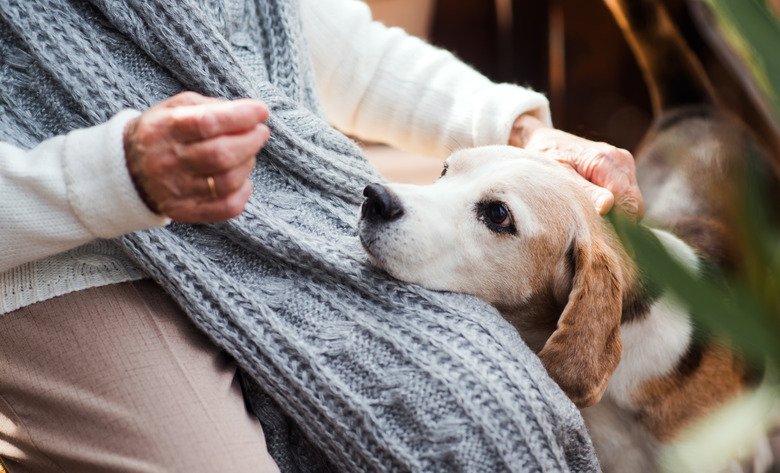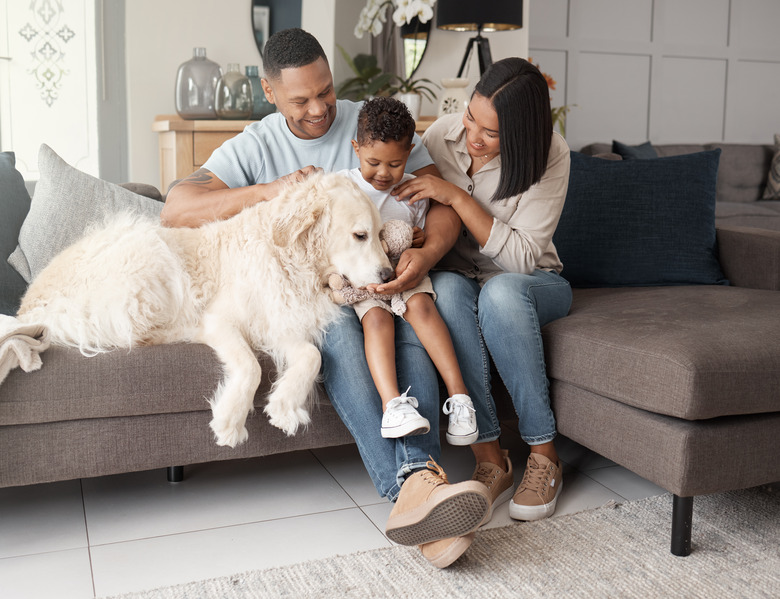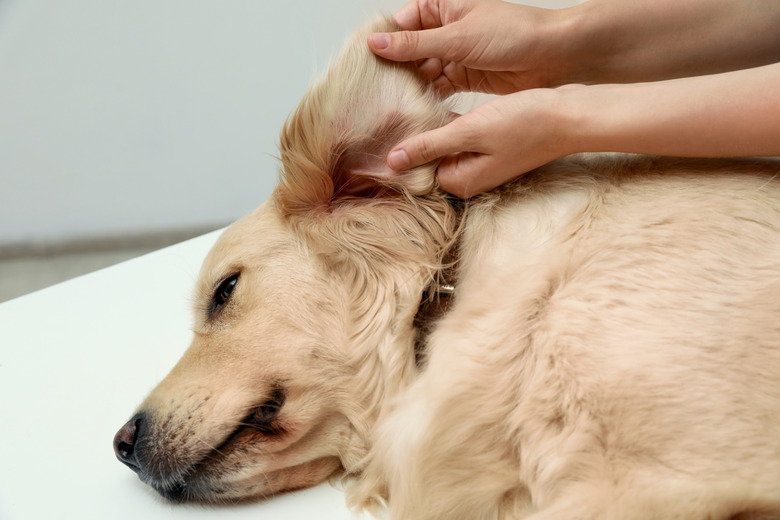What Causes A 14 Year Old Dog To Shake?
Over the last few years, you've watched your beloved dog take ever longer naps and their eyes grow cloudy. They have a hard time navigating the steps into the house, and you've bought a ramp so they can clamber into bed with you since they can no longer jump.
It's not a surprise, since at age 14, small breeds are the equivalent of 72-year-olds in human years, and large breeds similar to 88-year-olds. But if your dog is suddenly shivering or shaking it may not be a normal age-related change and will likely require a trip to the veterinarian for evaluation.
Is my dog shaking from fear and cold?
Is my dog shaking from fear and cold?
The most benign conditions that might cause old-dog shaking are circumstantial. Even if they hadn't been afraid of thunderstorms in the past, if your older dog is losing their hearing, they may be startled by a clap of thunder because it's suddenly a sound they can hear. And that can cause them to shake in fear.
Often, older dogs get cold more easily than they once did. They might start shivering while on a walk in cold weather, so it's a good idea for them to wear a coat or sweater outside. Inside, they still might shake, so make sure they have a soft bed like an orthopedic memory foam bed that can help hold their body heat.
If they will tolerate it, cover them with a light blanket while they're sleeping. A heated dog bed is also an option. Avoid using heating pads designed for humans, as they can become bunched up or folded, which is a potential hazard. Heating pads can also become too hot.
What if my dog is shaking and panting?
What if my dog is shaking and panting?
Pain can sometimes cause a dog to shake, but it's often hard to determine if your dog is in pain and the source. A dog shaking and panting might be a sign of stress due to intense pain. If the pain is caused by a bloated abdomen, it could be pancreatitis or another intestinal condition that causes dog shivering and vomiting.
If your dog is shaking and panting but has trouble walking or moving, it could be due to arthritis or hip issues, and in dogs with a history of back problems it could be a herniated disc. Dogs can also develop arthritis in their spine or a bridging together of some of their back bones (vertebrae) which limits mobility. This is a condition called spondylosis. These symptoms warrant a trip to the veterinarian, or emergency clinic, as soon as possible.
Diagnosing Addison's disease in dogs
Diagnosing Addison's disease in dogs
Addison's disease stems from a hormonal deficiency in the adrenal glands. These hormones help regulate water and electrolytes as well as keep stress under control. A dog shivering and lethargic could be caused by Addison's disease. The condition can also cause weakness, poor appetite, vomiting, and dehydration. Often, dogs with Addison's have a history of a sensitive stomach.
Addison's may go undiagnosed for a while because their symptoms can wax and wane. Some dogs may suddenly have weakness, severe vomiting, and could collapse. This is an Addisonian crisis and is an emergency.
Your veterinarian will perform blood, urine, and electrolyte tests to help diagnose the disease. If they have Addison's they will be prescribed oral or injectable forms of the hormones cortisol and aldosterone to control the disease, and they will have to take the medication for the rest of their life.
What if my dog is only shaking their head?
What if my dog is only shaking their head?
If you see your old dog shaking just their head, it may be related to ear irritation or infection. Dogs with long, floppy ears, like cocker spaniels and basset hounds, are especially prone to ear trouble. Check inside your dog's ears to see if they appear red, inflamed, or have an off odor. Dirty ears may also cause dogs to shake their head. If your dog is repeatedly shaking their head, it may make them feel better temporarily, but the cause should be determined by a veterinarian.
Additional causes of a dog shaking
Additional causes of a dog shaking
Just as an older person's hands may shake when doing a task, your dog may have trembling in their legs and jaw. This can be caused as muscles weaken with age and as changes occur in the nervous system.
As they age, dogs can be more sensitive to adrenaline when they're excited or scared, such as when a package is delivered to the front door or they see another dog on a walk. This extra stimulation to a dog may cause both shaking and panting.


